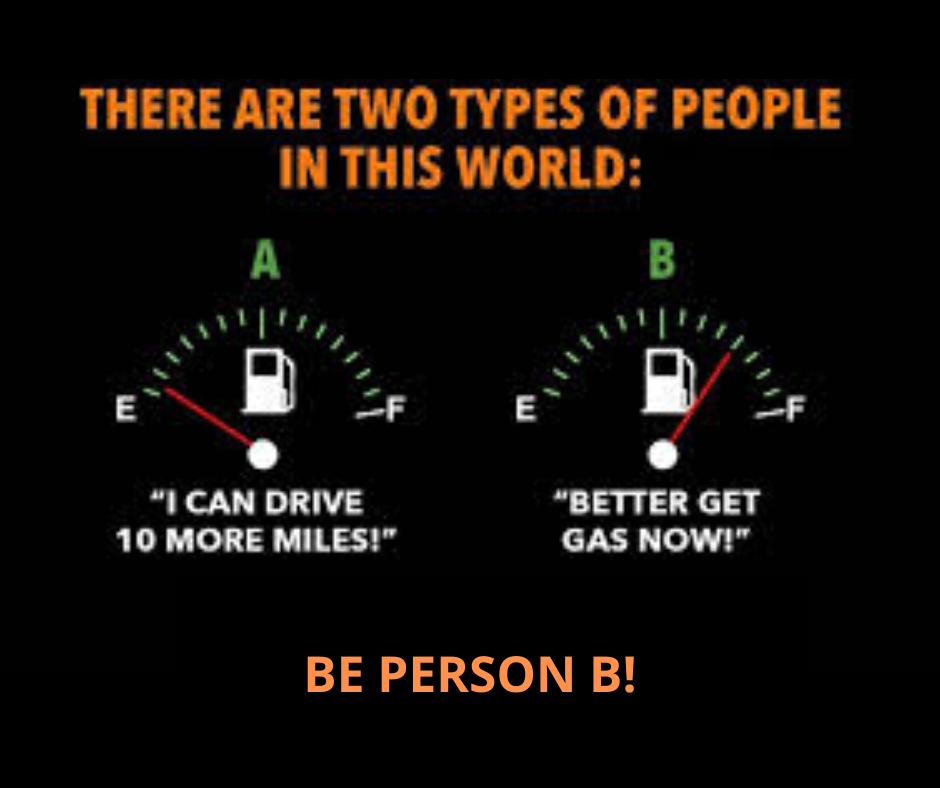

There are many reasons why most people avoid getting gas when their fuel tank is low. They may be running late, too busy to stop, or there may be a cheaper gas price closer to their destination. The problem with this is, saving yourself a little time and money now might cost you large amounts of time and money in the future. An obvious reason to not let your fuel level get too low is because you could get stranded if there is no nearby gas station. While not wanting to get stranded is a valid reason, the other concerns have much more to do with preserving the life of your car’s engine. Driving on an empty tank can cause extreme damage to your car in many ways and there are extra precautions to take regarding your fuel tank level as colder weather approaches.
How Much Gas Should be in My Car During the Winter?
Experts say, you should keep your gas tank at least a quarter full at most times, but almost half full during the colder weather to be safe! Allow yourself to always have enough gas to keep the heat on for warmth in case your car ever breaks down in the winter.
Three Reasons to Not Let Your Fuel Tank Get Too Low During Colder Weather:
1. Condensation: It is very common for condensation to form in the empty part of your gas tank. In the winter, that built up condensation and water can freeze into icy blockages in your fuel lines causing problems when it comes to starting your car.
2. Fuel Pump Failure: The fuel pump gets its lubrication from gasoline and to function properly, it needs to be completely submerged. Typically, this means you need at least ¼ of a tank to keep it submerged. The motor of your fuel pump needs gasoline, which acts as a coolant, to operate properly. When your gas tank gets low, the pump can suck in air, which generates heat. Over time, that heat can cause your fuel pump to wear down prematurely or even begin to fail. This is not a cheap or easy fix. When properly maintained, a fuel pump should last at least 100,000 miles, if not the lifetime of your vehicle.
3. Dirt or Rust in Your Tank: Occasionally, dirt and rust can get trapped in your fuel tank. Any particles that get into the gas tank settle at the bottom. They tend to stay there until your car is running low on gas and the pump sucks up every last bit, including all the dirt and debris. When the fuel pump sucks up debris, the particles can clog your pump or fuel filter. This can lead to reduced performance of your vehicle and require early replacement of the filter.
Tips to Avoid Running Out of Gas
1. Weight: As mentioned in one of our previous blog posts, Luke’s Auto Service Does More than Just Reduce, Reuse, and Recycle!, the more weight you have in your car, the more fuel you burn. Be sure to clean out your car and remove everything you don’t need!
2. Use Mobile Apps to Find Close Gas Stations: Have a passenger in your car use smartphone apps such as Google Maps, to find the closest gas station nearest to you on a long road trip.
3. Turn the Air Conditioning/Heat Off: We all love the cool air in warm weather or heat in cool weather, but when you’re running on empty, you need to increase your fuel economy. One way to do that is to turn off the A/C/heat immediately and unplug all accessories!
4. Don’t Drive Aggressively: Not only is it dangerous, but aggressive driving wastes a lot of gas. According to the U.S. Department of Energy, speeding or rapid acceleration and braking can drop your gas mileage from 15% to 30% at highway speeds. In stop-and-go traffic, the fuel economy drops from 10% to 40%.
After reading this blog post, we hope it is easier for you to get into the habit of filling up whenever your fuel gauge reaches the quarter mark or the halfway mark for colder weather. Be sure to read your owner’s manual to see the fuel recommendations for your specific vehicle because the manufacturer’s recommendations are the most accurate. Luke’s Auto Service in Verona, NJ is here for all your maintenance needs, including fuel pump and filter replacement!
